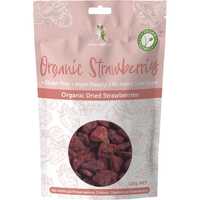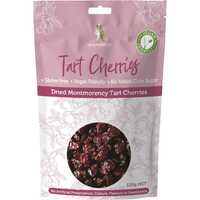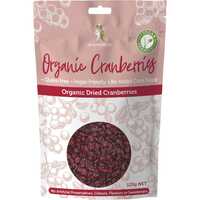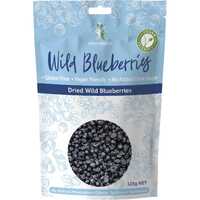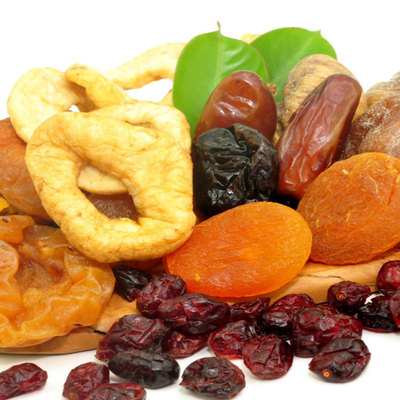It’s 3pm. You’re hangry (angry because you’re hungry). You know you need a snack ASAP before another poor colleague experiences the wrath of your hangry state of mind. Your diet has been spot on lately, so you know you want to reach for a healthy snack … but what kind of healthy snack? You’ve got a hankering for some dried fruit, but is dried fruit actually healthy? Chances are, you’ve asked yourself, the internet and even the post-man whether or not dried fruit is healthy because, in all honesty, there’s a lot of conflicting information about the healthiness of dried fruit. Some people claim it’s a healthy snack, while others say it’s no better than eating sweets. We wrote this short article in order to clear the air once and for all in the great dried fruit debate: is it a healthy snack or just another calorie-laden sweet treat?
How is Dried Fruit Made?
Dried fruit is fresh fruit that has had almost all of its water content removed through drying methods. In turn, the fruit shrinks, leaving a small, energy-dense piece of dried fruit. Common types of dried fruit include sultanas (raisins), dates, figs, apples, prunes and apricots. One of the benefits of dried fruit is that it can be preserved for much longer than fresh fruit, which is particularly convenient when you don’t have access to refrigeration, such as long road trips or when you’re flying.
The Truth About Dried Fruit
To understand the truth about dried fruit, we need to understand calories. All foods contain calories. Eat more calories than the energy you expend, you’ll gain weight. Eat less calories than the energy you expend, you’ll lose weight. Simple science! If all foods contain calories, then eating too many calories, even if it’s considered to be healthy, will likely cause weight gain. However, there are healthy calories and unhealthy or ‘empty’ calories. Fruit is a healthy source of calories, and so is dried fruit.
This, of course, doesn’t mean you can go and consume as much dried fruit as your heart desires. Fruit contains a significant amount of natural sugars, and while natural sugars are good for you, too much of a good thing can still produce harmful effects. Because most of the water has been removed from dried fruits, this concentrates the sugar and calories in a much smaller package. Dried fruit is therefore quite high in calories, glucose and fructose. Eating excessive amounts of fructose is known to have many negative health effects, such as increased risk of weight gain, diabetes and heart disease.
Furthermore, dried fruit is much smaller than the fresh fruit. And, because it’s so small, sweet and energy-dense, it’s incredibly easy to consume large amounts at a time, which can ultimately result in an excess intake of sugars and calories. Think about it this way: when was the last time you remember consuming more than 30 grapes at a time? That’s quite a large bunch of grapes, and many people wouldn’t consume that high a quantity. However, it’s extremely easy to eat 30 sultanas (or more) at a time. Furthermore, many store-bought dried fruits contain added sugars, which increases the amount of calories you’re consuming.
The Health Benefits of Dried Fruit
Dried fruit in its most natural state is extremely nutritious. It is loaded with micronutrients, fibre and antioxidants. Did you know that dried fruit actually contains more fibre and more phenolic antioxidants than fresh fruit per gram? Polyphenol antioxidants are known for their health benefits, such as improved blood flow, better digestive health, decreased oxidative damage and reduced risk of other common diseases. Dried fruit is also rich in fibre, and we all know we need fibre in our diets. Fibre fights heart disease, obesity and some types of cancer. And, people who eat diets rich in plant phenols have been shown to have lower rates of disease.
The Ugly Side of Dried Fruit
While dried fruit in its natural state (that is, it has no added ingredients to it) has many health benefits, many store-bought dried fruits contain added sugar. Dried fruit in itself is quite sweet, yet many manufacturers during the drying process add additional sugars to make the final product even sweeter. Added sugar is known to have serious and harmful effects on the human body. In saying this, it’s easy to steer clear of dried fruit that contains added sugar. You just need to make sure you always read the ingredients list at the back of the packet before purchasing dried fruit, and ALWAYS try and buy organic when you can.
So … is Dried Fruit Healthy?
Yes, and no. Like many foods, dried fruit has its benefits, but it also has its pitfalls. Here are the main things to remember when eating dried fruit:
- Always choose natural (organic when possible) with no added sugar
- Consume in small quantities
- Eat alongside other nutritious foods, such as nuts or seeds
All in all, when it comes to healthy snacks, if you follow the above steps, dried fruit can be a nutritious and delicious addition to your diet, curbing those 3pm hangry feels and keeping you satiated and happy.
...and remember, qualified nutritionists at Healthy Being are available to offer further general advice to help guide you in selecting the right products. So please, feel free to contact us at any time!
 Dr Peter Succar heads up the Product Research Team at Healthy Being and is an enthusiastic Health & Fitness Lifestyle Coach. He's passionate about helping others obtain optimum health, advocating realistic and achievable changes in diets and lifestyles that promote the body’s natural immunity, its ability to self-heal and achieve overall mental and physical well-being.
Dr Peter Succar heads up the Product Research Team at Healthy Being and is an enthusiastic Health & Fitness Lifestyle Coach. He's passionate about helping others obtain optimum health, advocating realistic and achievable changes in diets and lifestyles that promote the body’s natural immunity, its ability to self-heal and achieve overall mental and physical well-being.


 Certified Organic
Certified Organic Vegan Friendly
Vegan Friendly  Vegetarian
Vegetarian Organic Ingredients
Organic Ingredients Dairy Free
Dairy Free Gluten Free
Gluten Free Keto Friendly
Keto Friendly


























